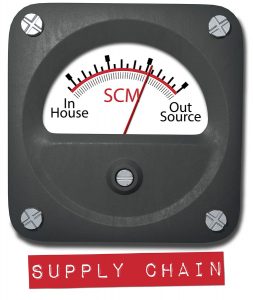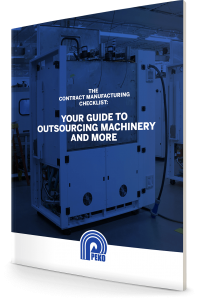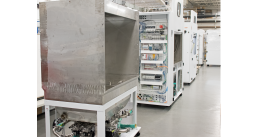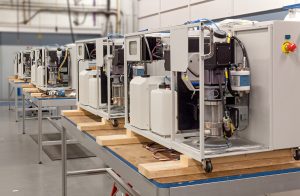
Benefits of Contract Manufacturing for Low Quantities
1. Outsourcing low volumes frees up overhead resources
Low volume contract manufacturers use a specialized cross-trained team to optimize efforts across all customers. The OEM, however, is not always so lucky. Purchasing and management overhead for low-volume products is extremely hard to manage efficiently. Contract manufacturers, however, can keep overhead employees at a swift pace, filling productivity gaps with other customers’ work. In this manner, no one is paying for downtime.
2. Shared real estate across product lines
Much like the above example with personnel overhead, contract manufacturers are able to use their space flexibly. Production ramp-ups and ramp-downs are less likely to cause a rift in production since machinery and space are shared across customer product lines.
There’s no point in an OEM acquiring brick and mortar space that might sit idle at a slow time. This would cut into profits drastically, making an otherwise viable product line look like a dud on the books.
3. Vertical integration saves on in-house process development
A good contract manufacturer will have some level of vertical integration. In contract manufacturing for low quantities, this might mean CNC machining, sheet metal fabrication, welding, mechanical assembly, and an array of other manufacturing processes are performed in-house.
For the OEM to provide the same level of vertical integration, there is a dramatic risk of underutilization combined with a huge capital equipment expenditure. Contract manufacturers, on the other hand, will be likely to optimize the process with all their existing in-house equipment. By leveraging this efficiency, the cost savings are passed to the OEM. Typically, this also includes all the skilled labor and management it takes to set up a manufacturing cell.
4. Taking advantage of rate disparity
Time and time again, we’ve seen large OEMs with house rates of $150-300/hour. When utilizing a smaller contract manufacturer, they will often have more reasonable rates, and there are immediate direct cost savings.
These kinds of disparities ensure that a large OEM can still find an extremely capable contract manufacturer for low quantities of their product without sacrificing quality. So, when choosing a good contract manufacturer, many OEMs are going to find themselves looking at companies that are much smaller than themselves.
These four reasons are just the tip of the iceberg as to why OEMs should consider outsourcing to a low volume contract manufacturer.
 Once you’ve decided to outsource, the next step is to find a qualified contract manufacturer for your product. PEKO is here to help you answer this question.
Once you’ve decided to outsource, the next step is to find a qualified contract manufacturer for your product. PEKO is here to help you answer this question.
We’ve spoken with hundreds of industry professionals who have evaluated contract manufacturing for their machinery or equipment and have used this insight to compile a guide of common considerations when choosing a manufacturer for your product.








